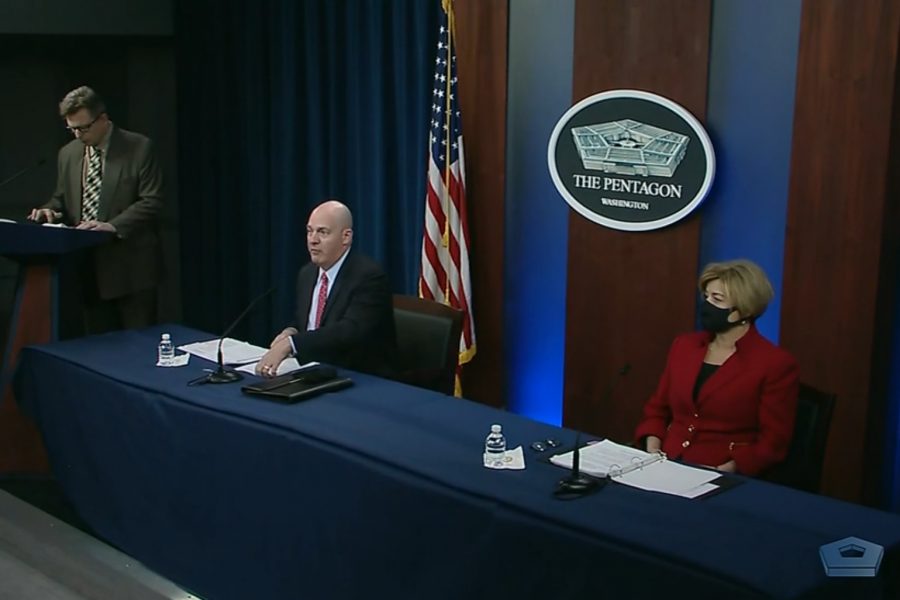Authorized U.S. arms exports jumped 2.8 percent, climbing to $175.08 billion in 2020 from $170.09 in 2019, fueled largely by major F-35 sales, the Defense Security Cooperation Agency announced Dec. 4.
The total reflects all deals DSCA has approved in the fiscal year, including $50.78 billion of implemented government-to-government foreign military sales. The increase in approved buys coincided with the State Department’s efforts to reform arms transfers, including the loosening of restrictions governing the export of remotely piloted aircraft.
The 2020 FMS sales dropped about $5 billion from 2019’s total of $55.39 billion for a three-year rolling average of about $54 billion, according to DSCA. Major implemented sales included $23.1 billion for F-35s to Japan, $4.5 billion for F-15J modernization to Japan, $4.25 billion for AH-64E helicopters to Morocco, and $3 billion for aviation fuel to Israel, among others.
Of that total, $44.79 billion is funded by allied and partner nations, $3.3 billion is from Title 22 foreign military financing, and $2.69 billion is from Title 10 U.S. government funding for foreign military assistance and building partner capacity, DSCA Director Heidi Grant said in a Pentagon briefing.
“The sales demonstrate the United States continues to be the global security partner of choice. Not only do we already offer the most advanced defense equipment in the world, we are also increasingly adapting to meet the technical needs of our allies and partner militaries,” she said.
Additionally, DSCA issued 28,800 export licenses via direct commercial sales, for a total of $124.3 billion. This is up from $114.7 billion in 2019. Major congressional notifications for this included $3.25 billion for P-8 spare parts to Australia, $1.12 billion for Italy to manufacture F-35 wing assembly, and $2.48 billion for E-7 Airborne Early Warning and Control aircraft.
Fiscal 2021 already looks to be a big year for arms sales abroad, though some announced deals have been met with controversy. In November, DSCA approved a $10.4 billion sale of F-35s and a $2.97 billion sale of MQ-9s to the United Arab Emirates, though several lawmakers have moved to block that sale.
The increase in approved sales came despite impacts of the COVID-19 pandemic, which reflects the importance both the government and defense companies put on meeting requests from allies and partners, said R. Clarke Cooper, the assistant secretary of state for political-military affairs.
“Through supply chains and revenue streams, though they were disrupted and budgets are uncertain, our partners’ programmatic needs remain unchanged,” he said. “Both the United States government and industry continue to honor our commitments to our partners.”
